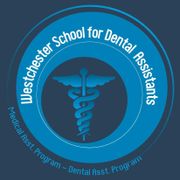What to Know About OSHA Certification’s Role in Dental Assistant Training

In the United States, the Occupational Safety and Health Administration—or OSHA—establishes and monitors regulations that protect American workers’ right to work within safe and healthy environments. As with other businesses, dental practices will be cited, and possibly fined, if they fail to comply with the health and safety standards set by OSHA. Fortunately, when dental assistants have the proper training, they can help practices stay compliant and safe. If you’re starting dental assistant training or are already working in the field, here are a few important points you should consider about getting your OSHA certification.
Is OSHA Training Required for Dental Assistants?
The amount of OSHA training that professionals take is technically optional, although the individual workplace is still required to meet current regulations. Despite this flexibility, most employers—especially those in the dental industry—require staff to complete some level of training.
In general, OSHA recommends that employees be retrained at least once every 12 months. Other OSHA certifications—such as the 10-hour and 30-hour programs—cover more detailed information, but technically do not expire. Still, it is a best practice for certified professionals to retrain and update their credentials once every three to five years.
How Do OSHA Certifications Benefit Dental Assistants?
 Having OSHA credentials—along with dental assistant training—listed on your resume can help make you a stand-out job applicant. Specifically, you will appeal to practices that are looking for a dental assistant who can coordinate staff training sessions, manage infection control measures, and maintain office equipment for safety. With the ability to complete more in your career, you’ll also be more likely to earn more than your non-certified peers.
Having OSHA credentials—along with dental assistant training—listed on your resume can help make you a stand-out job applicant. Specifically, you will appeal to practices that are looking for a dental assistant who can coordinate staff training sessions, manage infection control measures, and maintain office equipment for safety. With the ability to complete more in your career, you’ll also be more likely to earn more than your non-certified peers.
What Subjects Are Covered During OSHA Training?
OSHA training is usually broken into modules that cover the specific areas of concern within your particular industry. If you’re taking a 30-hour training program, you can expect to cover a wide range of topics that pertain to dental practice safety.
In regards to infection control, you will learn the best practices that apply to bloodborne pathogens, staff vaccination requirements, needle safety, hazardous waste management, and exposure control planning. You will also address a variety of equipment safety issues—such as how to wear protective gear or monitor X-ray equipment for radiation concerns. You’ll also be trained to recognize general workplace hazards—such as spills—and how to handle them to prevent accidents.
OSHA compliance is just one of several important aspects of dental assistant training. That’s why Westchester School for Dental Assistants is committed to offering comprehensive educational programs for those seeking a career in this field. In addition to health and safety, this program teaches the ins-and-outs of patient management, office administration, and equipment preparation—all subjects that will help you thrive in your career. To learn more about their dental assistant certification opportunities, visit this Elmsford, NY, institution online. For questions about enrollment and upcoming medical assistant classes, call (914) 682-9001.
About the Business
Have a question? Ask the experts!
Send your question

